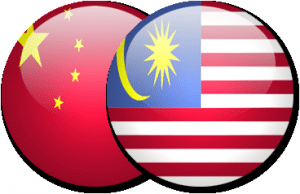By Zazali Musa – thestar.com
 JOHOR BARU: The Johor government has appointed state-linked company PIJ Holdings to provide certification for China-based companies in four Muslim majority regions there.
JOHOR BARU: The Johor government has appointed state-linked company PIJ Holdings to provide certification for China-based companies in four Muslim majority regions there.
Johor State Investment Centre (JSIC) general manager Mahadon Marnin said the company would collaborate with the Johor Religious Islamic Department (Maij) and Malaysia Islamic Development Department (Jakim) in this matter.
He said there were thousands of companies in the four regions – Xinjiang, Gansu, Xian and Lanzhou – producing halal products for consumers in mainland China with some of them also exporting to other countries.
“We need to come out with a standardised halal certification in order for the Chinese manufacturers to further expand their markets not only in China but also elsewhere,” Mahadon said.
He said that some 5,000 companies in the four regions had expressed their interest to use the halal certification logo issued by Jakim and Maij on their packaging.
Mahadon said PIJ Holdings had already appointed local agents in China and would conduct due diligence including working visits to the companies in the four regions planning to use the halal logo from Malaysia.
“Halal business is a big business worth about US$1.5tril (RM6.29tril) yearly and halal consumer products are not only restricted to Muslims but for all,” he said.
Mahadon said JSIC as the coordinator and facilitator for domestic and foreign investors coming to Johor would also beef up its efforts to attract Chinese companies to invest in the Johor Halal Park (JHP) in Pasir Gudang.
He said although there were 25 halal hubs in the country, JHP was different as the project was a collaboration between the state-linked company and a private developer.
“Other halal hubs or parks in Malaysia are set up by the private sector,” added Mahadon.
Separately, he said JSIC would put in more efforts to ensure investors in Johor continue to stay put in the state and expand their operations over the years.
Mahadon said JSIC wanted to have a balance between attracting new domestic and foreign investors into the state and at the same time retain existing investors.
“We will review our standard operating procedures periodically, taking into account constant changes in the global economic growth,” he said.
Mahadon said he was confident Johor would continue to attract new domestic and foreign investors based on its track record as the top investment destination in the manufacturing sector in the country.
Johor received about RM14.4bil in investments in the manufacturing sector in 2013, and the figure went up to RM21.1bil and RM31.1bil in 2014 and 2015 respectively, and last year it received about RM26.4bil.



